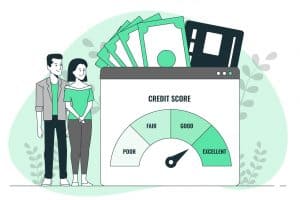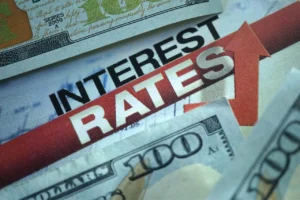Singapore’s property scene is in boom despite the global financial crisis brought about by the pandemic. This price growth is due to the high demand for property among locals and foreign investors, low-interest rates, and supportive government measures and has put real estate prices higher at 8.8% over the last quarter of December 2022.
Given this, home affordability in now a growing key concern among many homebuyers. With the high property prices, rising interest rates, high cost of living, could you still afford to get a home in Singapore?
Read on, as we give you a rough view of the average cost of homes in Singapore and what to expect in the property market if you want to explore property options this 2023.
Average Cost of Housing in Singapore in 2023
Singapore’s residential property market is significantly influenced by current market conditions, supply and demand, and changes in government policies. It is affected such that:
- Property prices will increase if the demand is high and supply is low.
- Cost of housing will also increase if there is economic downturn that causes an increase in interest rates.
- Government intervenes by introducing changes in policies to curb the demand in properties.
Get a sense of what you can expect to pay for a home in Singapore’s competitive real estate market, depending on the property type, by checking out the table below.
|
Property Type |
Average size (in sq.ft.) | Average Cost (in SGD) |
Price (per sq.ft.) |
|---|---|---|---|
|
HDB 4-room flat |
1,000 | 250K to 550K | S$250 to S$550 |
|
HDB 5-room flat |
1,200 | 405K to 700K | S$338 to S$583 |
|
1 BR Condominium |
600 | 420K to 700K | S$700 to S$1,167 |
|
2 BR Condominium |
800 | 640K to 720K |
S$800 to S$900 |
| 3 BR Condominium | 1,200 | 776K to 960K |
S$647 to S$800 |
| 4 BR Condominium | 1,800 | 1.12M to 1.4M |
S$622 to S$778 |
| Landed Property | 4,000 | 5M up |
S$1,250 up |
Source: Money Kinetics
Looking at the table above, the average cost of HDBs is significantly lower than Condominiums and than landed properties. Thus, making HDBs an affordable choice for many homebuyers in Singapore.
At a Glance: Average Cost of HDB
|
Property Type |
Average size (in sq.ft.) | Average Cost (in SGD) |
Price (per sq.ft.) |
|---|---|---|---|
|
HDB 4-room flat |
1,000 | 250K to 550K | S$250 to S$550 |
| HDB 5-room flat | 1,200 | 405K to 700K |
S$338 to S$583 |
HDB flats is the most common type of public housing in Singapore. Due to its affordability, it has become a popular choice among first-time homebuyers. HDB prices are government-regulated to ensure they remain affordable for the average Singaporean. Various subsidies and grants are also available to eligible homebuyers to help them purchase an HDB flat.
Typically, the average price of HDB flats varies depending on the unit’s size, location, and age. In the table above, we can see that a four to five-room flat may cost you around S$250K to $700K.
Flats in prime areas, like Clementi or Bishan, are more expensive than those in Sengkang or Bukit Batok. Moreover, larger and newer flats also have higher prices than smaller and older flats of the same size. Still, HDB flat prices are extensively lower than private residential properties such as condominiums.
At a Glance: Average Cost of Condos
|
Property Type |
Average size (in sq.ft.) | Average Cost (in SGD) |
Price (per sq.ft.) |
|
1 BR Condominium |
600 | 420K to 700K | S$700 to S$1,167 |
|
2 BR Condominium |
800 | 640K to 720K | S$800 to S$900 |
| 3 BR Condominium | 1,200 | 776K to 960K |
S$647 to S$800 |
| 4 BR Condominium | 1,800 | 1.12M to 1.4M |
S$622 to S$778 |
Condominiums are another popular housing option in Singapore and are ideal for those who prefer a luxurious and more private lifestyle. Homeowners can access amenities like spas, gyms, swimming pools, and 24-hour security with condominiums. Most of which are not available in HDB flats.
The average cost for a condo will typically range between $420K and S$1.4M, depending on the size. Still, prices may also vary significantly depending on the location. For instance, a one-bedroom condo in prime sites like Marina Bay may cost S$1M, while a similar unit found in Jurong West may only cost S$500,000.
At a Glance: Average Cost of Landed Properties in Singapore
|
Property Type |
Average size (in sq.ft.) | Average Cost (in SGD) |
Price (per sq.ft.) |
|
Landed Property |
4,000 | 5M up |
S$1,250 up |
Landed properties are among Singapore’s most coveted types of property, whether bungalows, semi-detached houses, or terrace houses. These properties are preferred by those who want large spaces, privacy, and exclusivity.
The average cost of a landed property stands at S$5M. These properties are popular among wealthy buyers who can afford a higher price tag for such types and are primarily situated in Central Singapore, thus, the high prices.
In the 3rd quarter of 2022, according to the Singapore Property Market Index, asking prices for landed properties increased by 3.53%. The demand for larger homes brought about this increase.
It is known that landed properties in Singapore have high appreciation rates and compete well in the rental market. So, if you want stability and security regarding property investments, landed properties are the ideal choice.
Factors Affecting the Cost of Property Prices
Like any property, HDB flat prices are also affected by several factors, such as the following:
- Location. The flat’s site is one of the most significant factors that affect the property price. Flats located in prime locations, central areas, and those near schools, churches, hospitals, malls, and public transport, are more expensive than those in the outskirts of Singapore.
- Flat Size. The larger the flat, the higher the price is since a larger flat can also accommodate the family members more comfortably.
- Age and Condition of Flat. Older flats are usually cheaper than newer ones due to the wear and tear conditions and the need for repairs and renovations.
- Amenities and Facilities. Properties with spas, gyms, restaurants, swimming pools, and other special facilities tend to be more expensive than those that do not offer such.
- Government Policies. The Singapore government plays a crucial role in regulating the property market. The government’s restrictions on foreign ownership of residential properties help keep the demand in check.
- Economic Growth. When the economy is strong, people have more money to invest in property.
- Supply and Demand. Property prices tend to rise when the demand for property increases. On the other hand, prices are most likely to decrease when properties are oversupplied.
- Interest Rates. If interest rates are high, it will cost more to borrow money, leading to a decrease in demand.

What to Expect in 2023? The Good and the Bad
Singapore’s property market has had its ups and down over the years. Yet, the market has continued to recover over challenges and downturns and is now picking up its pace again. But will this be a steady climb or a bumpy ride for Singapore’s property market?
Here’s what buyers and sellers can expect this 2023:
The Good
1. Lower resale market prices
Effective September 20, 2022, HDB has implemented a 15-month wait-out period for existing homeowners who are disposing of their private properties before they can buy a resale flat. With this wait-out period in place, resale flat prices may lose momentum.
2. Robust rental market
As the economy continues bouncing off to recovery, rent growth is also expected to increase. This increase is due to the return of foreign workers to Singapore and result from the demand for space for those working from home. Thus, the demand for temporary homes, such as rental flats, will be on an uptrend, and 2023 could be a good year for landlords.
3. More BTO flats built
BTO flats remain to be a popular housing choice in Singapore. To meet the surging demand for housing properties, HDB will launch 23,000 BTO flats this 2023.
4. Increase in values of properties
The development of new stations like Thomson-East Coast MRT line, Jurong Region line, and Cross Island line will be completed this 2023. Completing these projects will increase the value of properties near these new stations.
5. Sustainability and smart innovations
We can also look forward to growing trends in technology in property development. Buyers may become prioritize homes that are energy-efficient, environmentally friendly, and equipped with the latest technology.
The Bad
1. Rise in interest rates
Interest rate hikes are expected globally in the coming years, which could lead to higher borrowing costs for property buyers. Higher loan rates and increased buyer stamp duties may dampen the demand in the Singapore property market.
2. Additional property cooling measures
The Singapore government has recently implemented several cooling measures to curb property speculation and prevent a property bubble. This 2023, we could see additional measures that could impact the market.
3. Oversupply of unsold units
While an oversupply may lower the price of properties, it may also lead to increased competition among developers and sellers, impacting property prices and rental yield.
Home Loan Options for HDB flats
HDB flats are the most affordable housing option in Singapore. While the default option is to go for an HDB concessionary loan, bank loans are still an ideal alternative.
1. HDB Loan
If you opt for the HDB concessionary loan and qualify, you may get an LTV value of up to 80% of your flat’s valuation price. The remaining 20% is the amount you need to pay for initial downpayment. You can use cash, CPF OA savings, or both to pay for the downpayment.
The current interest rate for HDB loans stands at 2.6% and remains fixed throughout the loan duration.
2. Bank Loans
Bank loans are another excellent alternative when purchasing HDB flats. However, you should be prepared for a stringent credit check.
Compared to HDB loans, bank loans offer flexibility in terms of interest rates, allowing borrowers to choose between a fixed-rate and a floating-rate home loan. However, LTV runs lower at 75% and the required down payment is higher at 25%. At least 5% of the down payment in cash and the remaining 20% in cash, CPF OA savings, or both.
Still, a housing loan is unique to each borrower. Whatever option you choose or qualify for, review everything about the loan, including all interest rates, lock-in period, loan tenure, and all other features and details before signing into a deal.
3. Combination of HDB Loan and Bank Loan
Flat buyers can also opt for a combination of the HDB Concessionary Loan and a bank loan. In this scenario, the HDB loan covers a portion of the purchase price, while the bank loan covers the remaining amount. This option can provide greater flexibility in terms of interest rates and loan tenure.
See Also: CPF vs Home Loan and COV Singapore

How to Save Money When Buying a Home
Buying a home is a major financial investment, and it’s natural for anyone to want to save as much money as possible. Here are some tested strategies and helpful tips on how to save money when buying a home.
1. Stick to your set budget.
It’s essential to have a set budget before you start on your home-finding journey. Ensure that this budget is an amount you can afford to spend on the home, including the down payment, closing costs, and monthly mortgage payments. Be realistic about your budget and stick to it to avoid overspending, as this can lead to financial stress.
2. Shop around for the best mortgage rates.
Mortgage rates vary depending on the financial institutions. To find the best deal, shopping around and comparing each loan’s interest rates, fees, and terms is crucial. Start by checking with several financial institutions, including banks, credit unions, and many others.
3. Consider a fixer-upper
Ready-to-move-in homes may seem more appealing, but they can also be more expensive. A fixer-upper may require work but can save you a high cost. If you’re handy or willing to learn some DIY skills, you can tackle some of the home improvements yourself, which can save a lot of money.
4. Hire a reputable home inspector.
A home inspection can help uncover any issues with the property that may not be apparent to the naked eye. Hiring an inspector can help you avoid costly repairs down the road.
5. Use some negotiating skills.
If you’re interested in a property priced higher than your budget, consider making a fair offer. The seller may be willing to negotiate, especially if you are an amicable buyer and the property has been on the market for a while.
6. Avoid unnecessary extras
If you are committed to sticking to your budget, avoid unnecessary extras that can add up quickly. For instance, Interior upgrades such as granite countertops or hardwood floors can be costly. Always prioritize your needs over wants to avoid overspending on unnecessary extras.
Closing
Owning a house has become a major milestone and a status symbol in Singapore. So, if you are financially ready, 2023 may be an ideal year to purchase your dream home. After all, buying a home property is not just a wise investment but also an opportunity to provide a safe place for you and your loved ones.
Key Takeaways
- The Singapore property market is expected to remain stable, with a moderate increase in property prices.
- The average cost of residential properties in Singapore may range from:
- S$250K to S$700K for a four to five-room HDB flat
- S$420K to S$1.4M for one to four-room condominiums
- S$5M up for landed properties
- The average cost of homes in mature estates is likely to be higher than in non-mature estates.
- Private property prices are expected to rise faster than HDB resale prices this 2023.
- Buying a property is a long-term financial commitment; take your time and weigh your options carefully before deciding.
Are you looking for an urgent boost in your finances? Instant Loan, a trusted loan comparison service provider, will help match you with Singapore’s best bank loan providers. Visit our website today and get three free loan quotes within 30 minutes – commitment-free!








